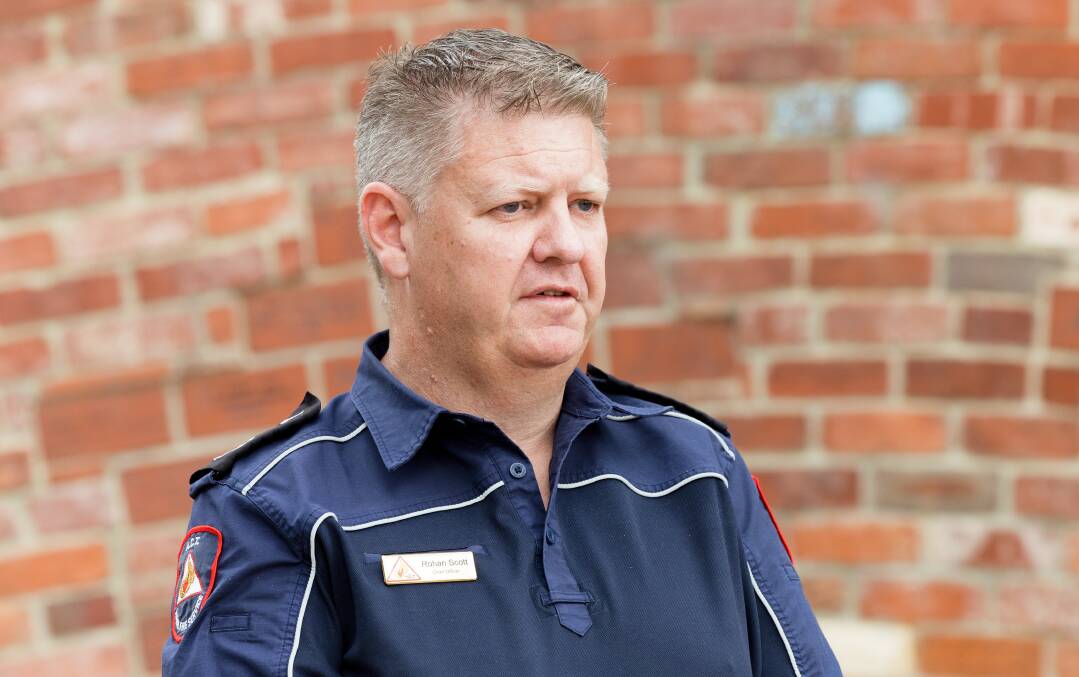The boss of the ACT's Rural Fire Service has said the agency and community was much better prepared for major bushfire events.
Rohan Scott said he believed changes over the past 20 years, including better fire detection, better firefighting assets and improved community messaging would help to prevent the same level of damage in the future.
"I would be very comfortable to say that if we were to have something similar the damage wouldn't be as much as what it was due to those things that have happened in that 20 year period," he said.

Mr Scott, who was a rural fire service volunteer in the 2003 bushfires, made the comments at an event marking the 20th anniversary of the devastating fires in which four people lost their lives and 487 homes were destroyed.
"Out of the devastation of the 2003 fires there were a lot of positives that not only the agency and the rural fire service progressed but also as a community we've come closer together," he said.
"That's been very evident not only in the recent storm events but during the pandemic.
"As a service we're very well prepared for anything that might happen subsequent to this season. We've got better fire detection, better aviation assets, better vehicle resourcing, our volunteers are very well trained in a very professional workforce."
ACT Emergency Services Commissioner Georgeina Whelan said the fires had been a catalyst for change.
"It was an event that we would not wish upon anyone in any community, nevertheless, it was a catalyst for change for the ACT emergency response capability," she said.
"What was born from that experience was the basic DNA of an emergency services capability that has continued to grow and evolve based on the learnings of 2003."

But the United Firefighters Union used the 20th anniversary to deliver a blistering attack of the Emergency Services Agency saying it had "failed" to learn the lessons from the 2003 response.
A recent report from the ACT Multi Hazard Advisory Council also found the territory was not sufficiently prepared to combat the increased risk that bushfires will present as a result of climate change. The report also found better planning and protection is needed for Canberra's growing urban edge.
The council said there needed to be an increase in bushfire management planning proportionate to the threat of a warmer, drier Canberra to avoid a disaster such as that experience in 2003.
Mr Scott said as Canberra expanded to the west there were better risk mitigation activities happening.
"As you see now with any development there's that edge road, we've got asset protection zones where we maintain that clear fuel so the fires don't get those runs," he said.
"We've got better building standards, better fire detection, better community messaging. So there's a lot of things that are adding up that the community is a lot safer."
Emergency Services Minister Mick Gentleman also believed the agency was better prepared and cited the response to the 2020 Orroral Valley bushfire.
"We'll certainly see big fires again. We saw this, of course, in 2019-20. It's how we are prepared for them and how we address them into the future that's important and this is why our ESA is evolving every year," he said.
Following a coronial inquest, coroner Maria Doogan called the 2003 disaster a "tragedy of momentous proportion".
However, the ACT is still waiting for the coronial inquest into the Orroral Valley fire after the inquiry was postponed last year.
Hearings are expected to resume in April.
We've made it a whole lot easier for you to have your say. Our new comment platform requires only one log-in to access articles and to join the discussion on The Canberra Times website. Find out how to register so you can enjoy civil, friendly and engaging discussions. See our moderation policy here.







